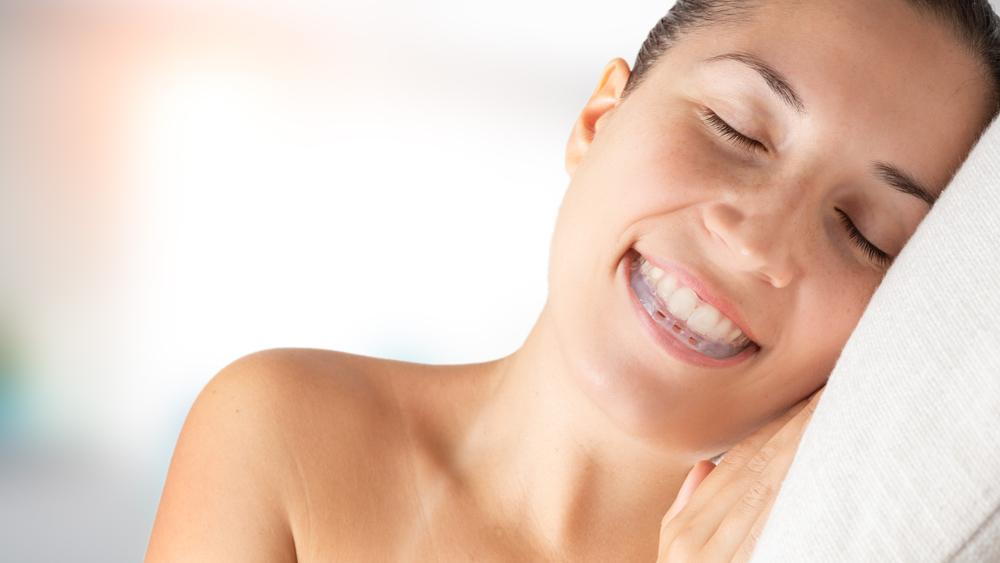
Are you grinding your teeth at night? Even here in the laid-back East Bay Area, this is a more common problem than you might think. As soon as you notice that you are doing this, we hope that you will immediately make an appointment to come into our Pleasanton dental office for a checkup. There are a couple of reasons for this.
First, we will need to check the current damage and wear to your teeth before we recommend anything, even something as common as occlusal night guards. Second, we need to do some work to create a night guard that is custom fitted to your teeth. For the rest of this article, we will talk about how to know if you are grinding your teeth, what night guards do, and what to expect from the dentist during your visit to our office here in Pleasanton.
Do You Need Night Guards? How To Tell if You Are Grinding Your Teeth
One of the best ways to tell if you are grinding your teeth is to come in for regular dental appointments. We will keep track of your teeth and we will certainly recommend occlusal guards if we see abnormal wear. In addition to a professional eye on the subject, you can also help us identify teeth grinding.
Some of the symptoms include fatigue, headaches, jaw pain, earaches, or tooth pain. If you are grinding teeth at night, these symptoms should be more pronounced in the morning. However, do not worry too much about the timing of your pain. Symptoms throughout the day could indicate TMJ disorder — something for which night guards also happen to be a common treatment.
How Does It Work? What Occlusal Night Guards Do
The key to how occlusal night guards work is in their name. The word "occlusal" refers to the action of occlusion: when teeth come into contact with their counterparts on the other jaw bone. When you clench your teeth, you're pressing the occlusal surfaces together.
The term we use for habitually clenching and grinding is "bruxism". Occlusal guards protect the surfaces which would otherwise be grinding together. They also tend to help you reduce or eliminate the grinding behavior altogether during sleep. They do this by providing a custom-fitted, purpose-designed protective layer of specialized medical plastics, with the exact type of plastic depending on your symptoms, age, and the goals of the treatment.
What To Expect at the Dentist
After you call (925) 462-1464 to make an appointment at our Pleasanton dental office, there isn't much you need to do to prepare. Just be ready to talk about your symptoms and let the dentist examine your teeth for any signs of grinding. Unresolved bruxism can lead to chipped teeth, broken teeth, or even tooth loss, so please make your appointment soon.
